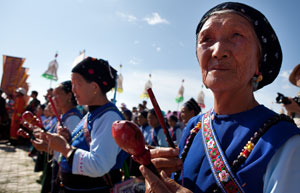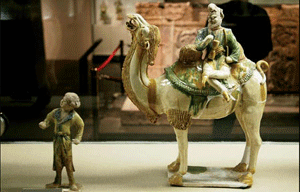Govt tightens approval of overseas trips
Updated: 2011-10-24 07:51
By Zheng Xin (China Daily)
|
|||||||||
BEIJING - Beijing municipality has taken steps to strengthen the supervision of programs that use public funds to send officials and government workers overseas for training.
Spending on overseas exchanges programs, together with money for official receptions and the purchase and maintenance of officials' vehicles, have become controversial topics. The government has been covering from 20 percent to all of the cost of the trips in an attempt to bring advanced skills back to China.
However, some agencies have turned the learning opportunity into a government-sponsored vacation, a corrupt practice that damages the public's trust in the government.
In response, Beijing municipality has further tightened the application process for overseas training programs, which have sent more than 25,000 people abroad for academic studies in the past eight years, the Beijing Municipal Bureau of Human Resources and Social Security said.
"The government sends staff out of the country to learn skills and for cultural exchanges, not for sightseeing or shopping," said Lu Ge, deputy director of the State Administration of Foreign Experts Affairs' department of overseas training.
Some of the centers that arrange overseas training end up as travel agencies that arrange fine food and entertainment for tours, Lu said.
Lu said engineers, technicians, management personnel and officials from developing rural areas should "truly learn skills instead of simply getting a general idea".
The government is also encouraging younger staff to go abroad to learn.
"We should not consider the overseas studies as welfare for senior workers, but a chance to bring advanced technologies and ideas home to better construct the city," Lu said.
In addition, no overseas training applications would be approved if the teaching can be done at home and no sightseeing activities can be included in the training.
First launched in early 1980s, the training programs mainly cover public management, business administration, teaching methods and public health.
Xu Guang, who works in the Tian'anmen area management committee's personnel department, said staff members were mainly sent abroad to learn advanced skills in the protection of cultural relics and how to organize big events.
China has recently become a major player in such international exchanges.
Jeannette Dai-Wang, deputy director of Maryland China Initiative, a training institute in the US, said the program was especially for Chinese trainees.
"Scholars and trainees from China taking courses at our institution account for the biggest percentage," she said.
China Daily
(China Daily 10/24/2011 page7)










